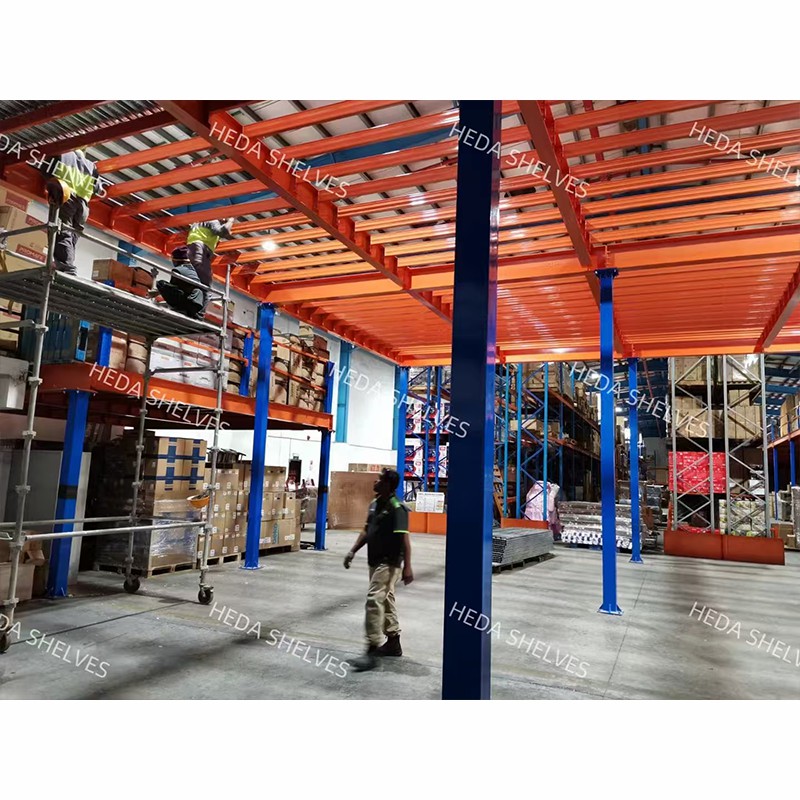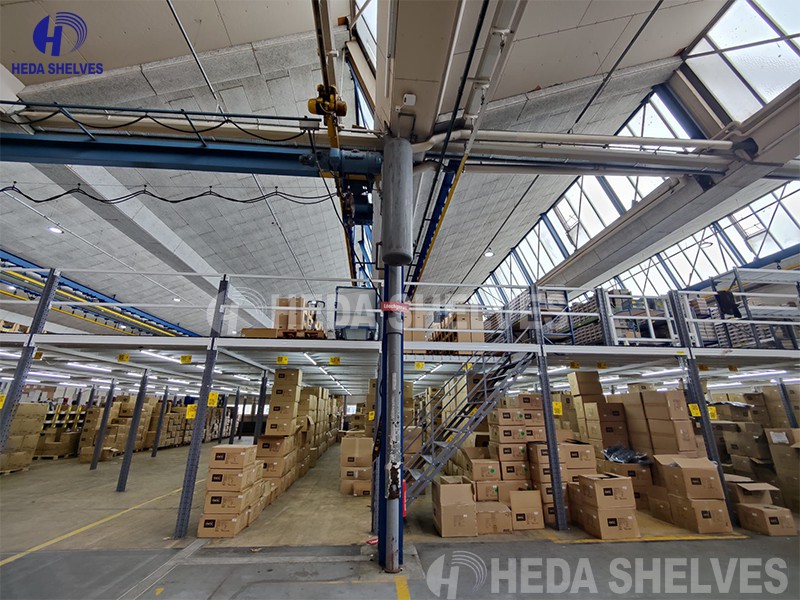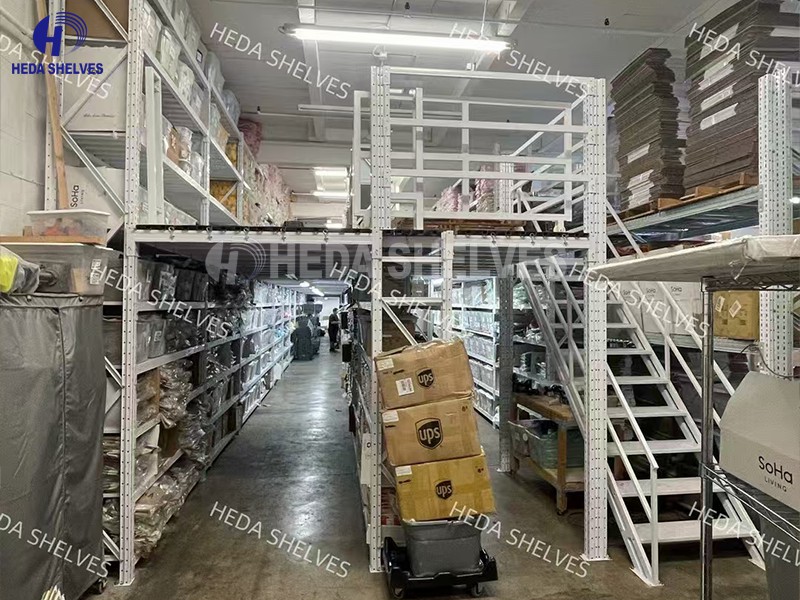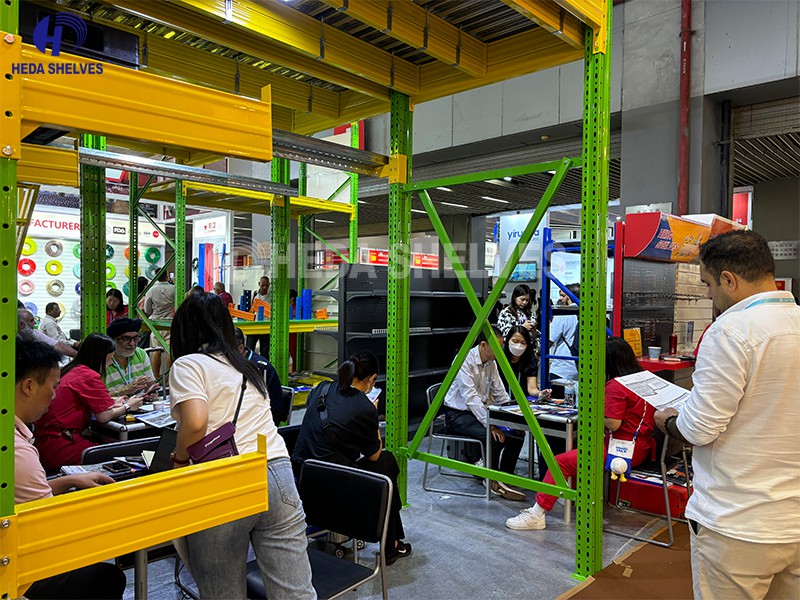Are you’ve been start your warehousing business or face to the space limited, you must have heard about mezzanine floors. But Commercial Mezzanine is different from the residentials. How a mezzanine floor increase your business? If that has you wondering install mezzanine floor for warehouse, this post is for you.
How many factors should be consider before choosing mezzanine floors? Which one right for my business? Read through this blog post, and you will realize mezzanine floor systems types,benefits,and our case studies.
What Is A Mezzanine Floor?
"In industrial settings, mezzanines may be installed (rather than built as part of the structure) in high-ceilinged spaces such as warehouses. These semi-permanent structures are usually free-standing, can be dismantled and relocated, and are sold commercially." Definition from Wiki.
In commercial area, mezzanine floor also called as industrial mezzanine. It utilizes vertical space efficiently, allowing businesses to expand their operational area without the need for costly building expansions. This flexibility makes mezzanines an essential component in modern warehousing and manufacturing environments.
What Is The Purpose Of An Industrial Mezzanine Floor?
The primary purpose of an industrial mezzanine floor is to create additional usable space. This can include storage areas, production zones, or office spaces. By maximizing vertical height, businesses can optimize their layout and improve workflow without relocating.
What Are The Different Types Of Mezzanine Floors?
Mezzanine floors are versatile structures that can significantly enhance the functionality of a space. They are typically categorized based on construction materials and design types. Understanding these types helps businesses choose the right mezzanine for their needs.
Based On Construction Materials
Bar Grating Mezzanine Floors
Bar grating mezzanines are constructed using stainless steel or aluminum grating. They are slip-resistant and allow for air and light to pass through, making them ideal for environments where ventilation is crucial. Their robust design supports heavy loads while requiring minimal maintenance.
Wood Mezzanine Flooring System
Wood mezzanines combine aesthetic appeal with functionality. They are popular in retail and office settings where appearance matters. Wood is easy to install and provides a warm look, but it’s best suited for lighter loads compared to steel or concrete options.
Steel mezzanines are known for their strength and durability, making them suitable for heavy-duty applications. They can support significant weight and are often used in warehouses and factories where robust storage solutions are needed.
Concrete Mezzanines
Concrete mezzanines offer the highest durability and load-bearing capacity. They are permanent installations, ideal for industrial settings that require stable flooring for heavy equipment or machinery. However, their weight makes them less flexible in terms of relocation.
Mezzanines According To Design Type
Freestanding Mezzanines
These structures stand independently within a space, supported by columns rather than attached to walls. They provide flexibility in design and can be customized to fit various operational needs.
Rack-Supported Mezzanine Floors
Rack-supported mezzanines utilize existing shelving or racking systems for support. This design maximizes storage efficiency beneath the mezzanine while providing additional space above, making it a cost-effective solution.
Catwalk Mezzanine System
Catwalk mezzanines feature elevated walkways that provide access to additional shelving or storage areas above. This design is particularly useful in environments where easy access to high storage is necessary.
Full Mat Mezzanine Flooring System
Combining features of both freestanding and catwalk systems, full mat mezzanines offer versatility for various applications, from bulk storage to office space.
Multi-Level Mezzanine Floors
Multi-level mezzanines create several tiers of usable space within a facility, ideal for maximizing vertical height in warehouses with high ceilings.
Modular Mezzanine
Modular mezzanines are pre-fabricated off-site and can be quickly assembled on location. This type allows for minimal disruption during installation and offers flexibility for future modifications.
Where Is A Mezzanine Floor Used?
Mezzanine floors are versatile structures that can be utilized across various industries. Their ability to maximize vertical space makes them ideal for different environments. Here’s a look at some common applications:
Warehouses
In warehouses, mezzanine floors are used to create additional storage space without expanding the building's footprint. They allow warehouse managers to utilize the vertical volume effectively, often doubling the available floor area. This is particularly beneficial for accommodating growing inventory without the need for costly relocation or construction projects15.
Storage Mezzanines: These provide extra space for stock management and handling.
Workspace Mezzanines: Positioned above the main warehouse, these areas can serve administrative functions or as cleanroom spaces.
Factories
Factories often use mezzanine floors to enhance production capabilities. By adding a mezzanine, companies can create additional manufacturing space without moving to a larger facility. This flexibility allows for better workflow and operational efficiency, accommodating machinery and equipment while maintaining compliance with safety regulations.

Distribution Center
In distribution centres, mezzanine floors facilitate efficient logistics operations by providing extra space for sorting and packing goods. They help streamline processes by allowing easy access to products stored at different levels. This setup can also integrate conveyor systems for smooth material handling.

Retail Picking Space
Retail environments benefit from mezzanine floors by increasing sales floor area. Retailers can create attractive displays and maximize shelf space, which directly contributes to higher sales volumes. Mezzanines in retail settings are often designed to blend seamlessly with the store's aesthetic, enhancing customer experience while boosting profits.

Supermarkets
Supermarkets utilize mezzanine floors to expand their product offerings without expanding their physical footprint. By creating additional levels for storage or customer service areas, supermarkets can optimize their layout and improve shopping flow. This strategic use of space helps supermarkets accommodate seasonal inventory fluctuations efficiently.
Offices
In office environments, mezzanine floors provide additional workspace without requiring a move to a new location. They can be designed as open-plan offices, meeting rooms, or private workspaces, effectively utilizing high ceilings in industrial units or showrooms. This setup not only maximizes available space but also fosters collaboration among teams by integrating different departments within close proximity.

Discover Industrial Mezzanine Floors One-stop Solution with Heda Shelves
Mezzanine floors can be a great addition to many industrial and commercial work spaces to increase the usable floor space within the building.
For many workplaces, installing a mezzanine can be a cost effective option to add usable space to the workplace without requiring a costly building addition. Heda Shelves, one of leading Mezzanine Floor manufacturer in China with 20+ years experience. Contact us today to arrange a free no-obligation layout or call us now on +86 -18124246657, we look forward to giving your business the lift up it deserves!
Industrial Mezzanine Floor FAQs
How do mezzanine floors impact the safety and security of a warehouse?
Mezzanine floors enhance warehouse safety by incorporating features like guardrails, pallet gates, and clear walkways to prevent falls and accidents. Proper training on load limits and emergency preparedness further ensures a secure working environment, while regular inspections maintain structural integrity. Overall, these measures contribute to a safer and more organized warehouse operation.
What are the maintenance requirements for mezzanine floors?
Mezzanine floors require regular inspections to assess structural integrity and identify any signs of wear or damage. Routine cleaning is essential to prevent slip hazards, while monitoring load capacity ensures safe usage. Additionally, safety features like guardrails must be maintained, and any repairs should be addressed promptly to ensure ongoing safety and functionality.
What are the most common customization options for mezzanine floors?
Mezzanine floors can be customized with various options, including different flooring materials (like bar grating, wood, or steel), design configurations (such as freestanding or rack-supported), and integrated features (like staircases and pallet gates). This flexibility allows businesses to optimize their space for specific functions, whether for storage, offices, or showrooms. Contact Our Expert For One-stop Mezzanine Floor Solution.



Hi! Click one of our members below to chat on





